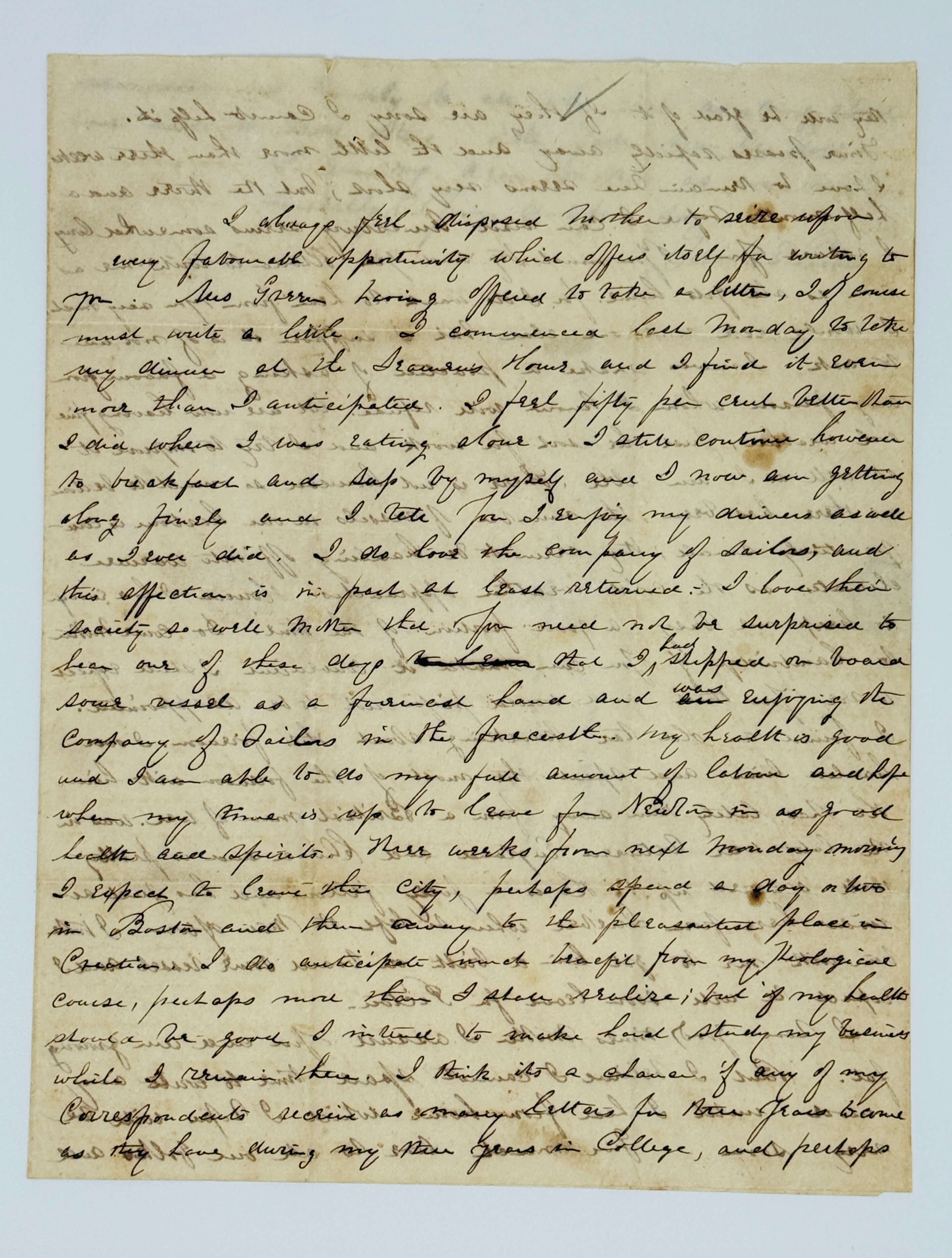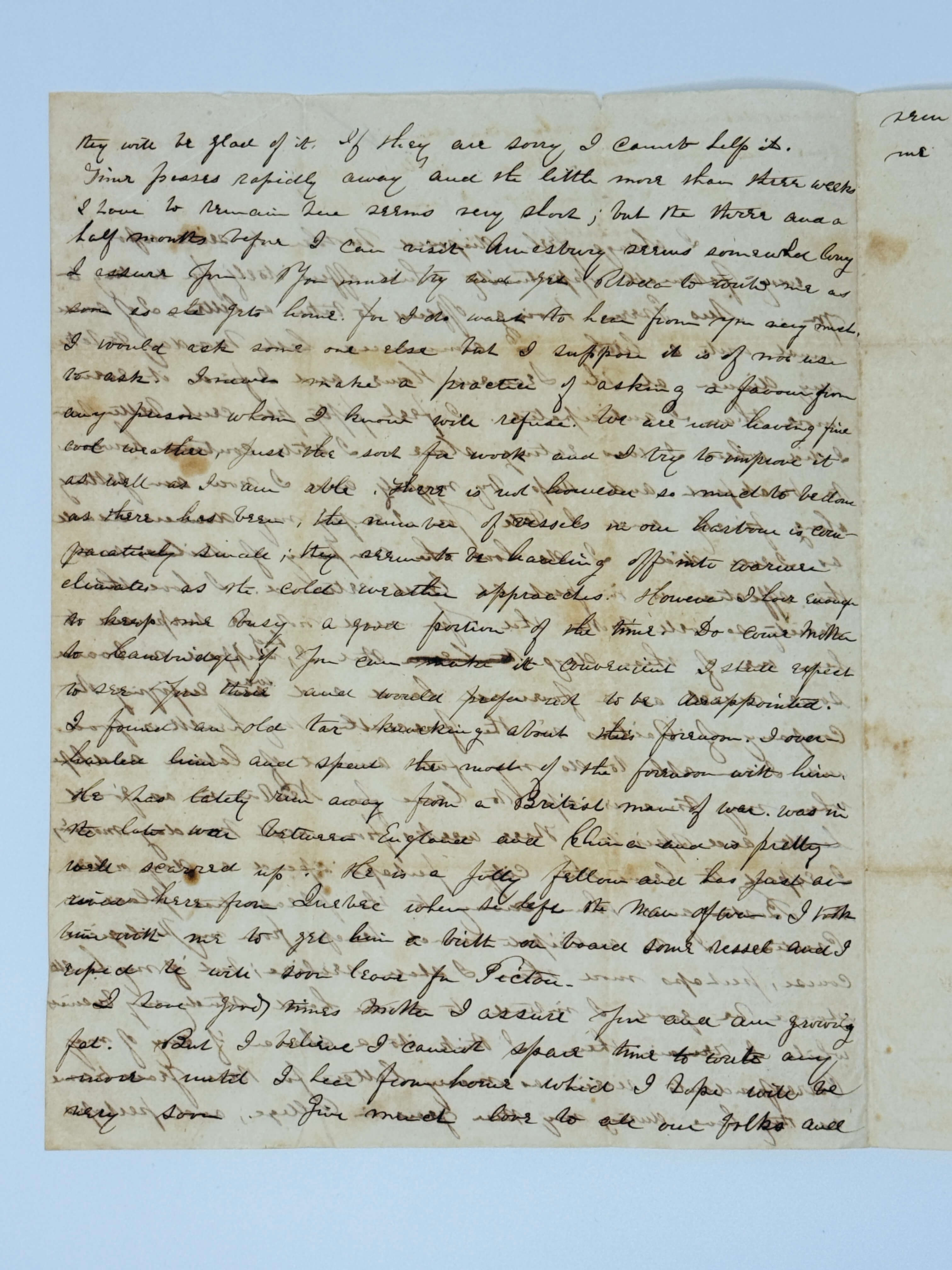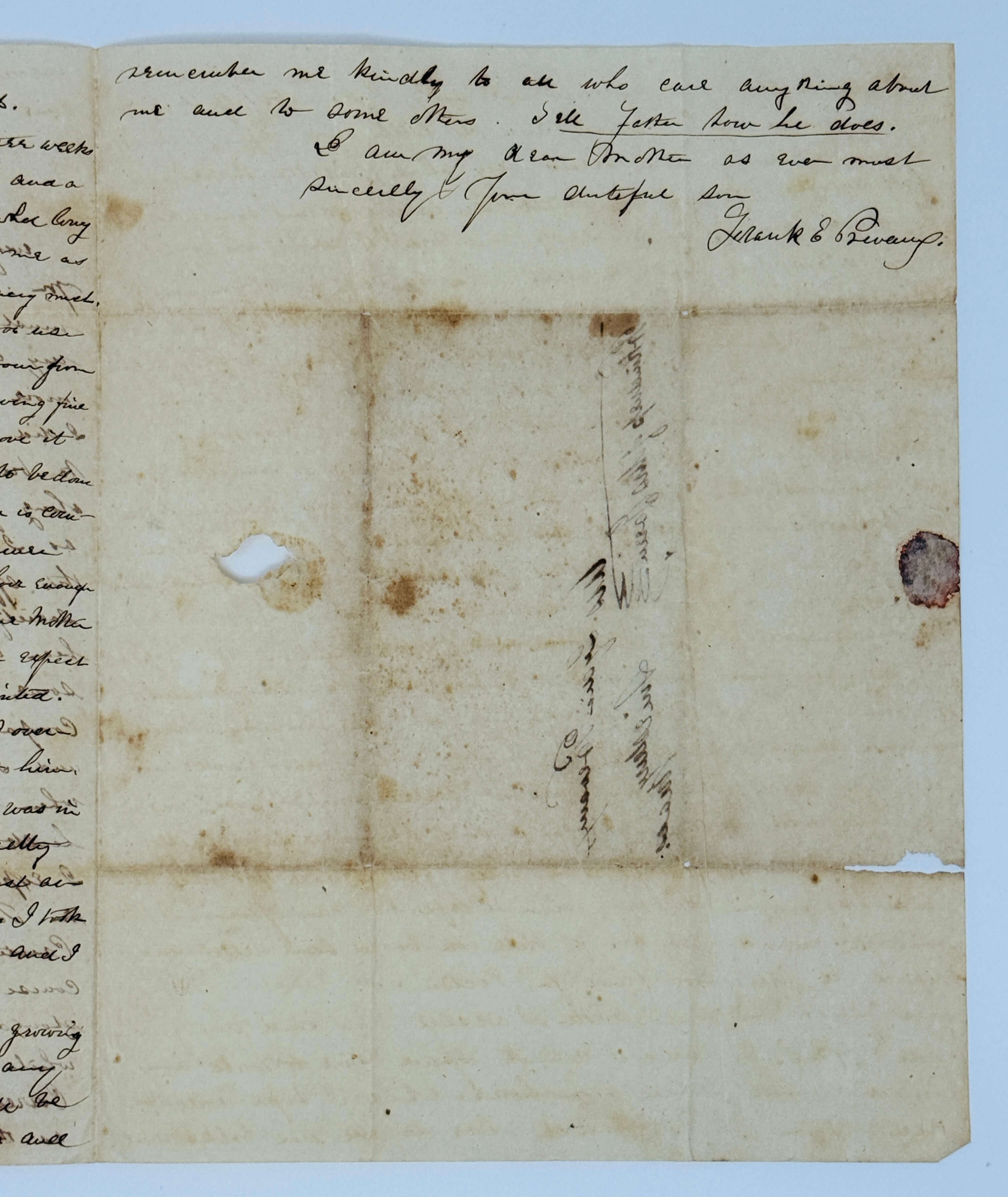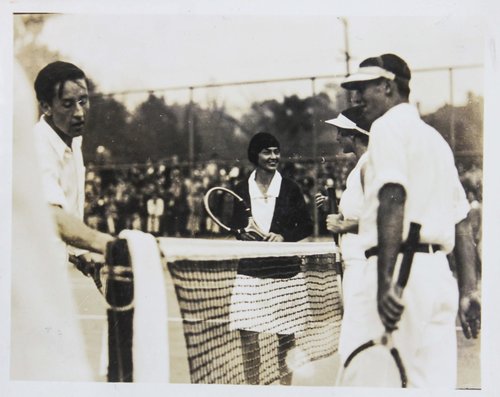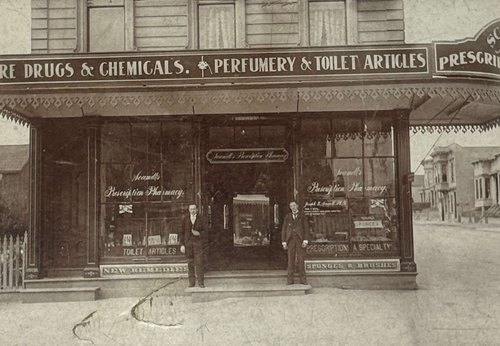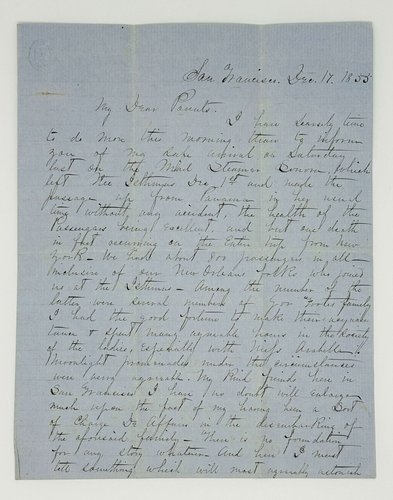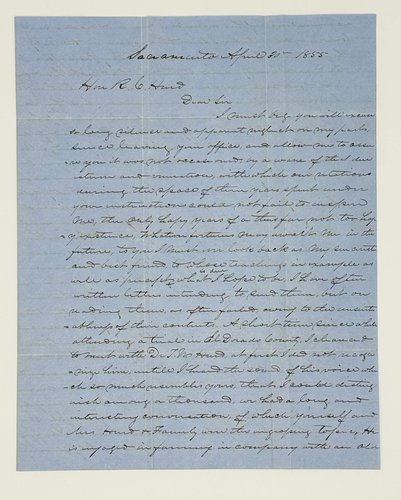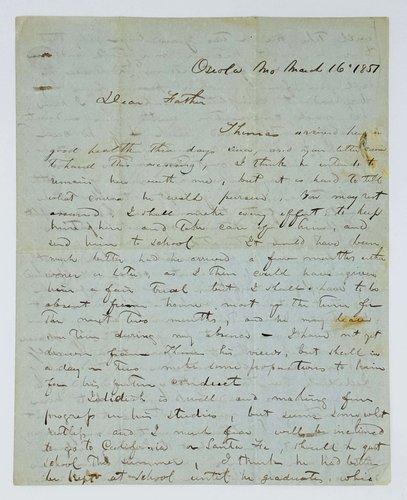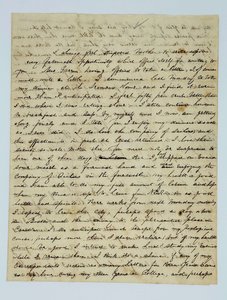
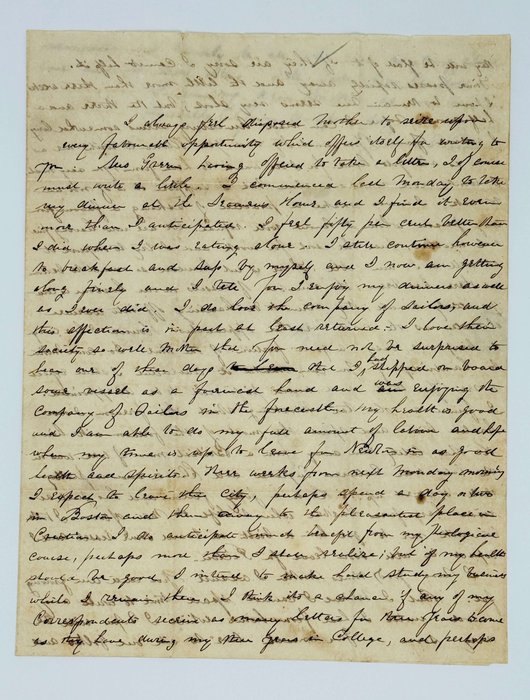
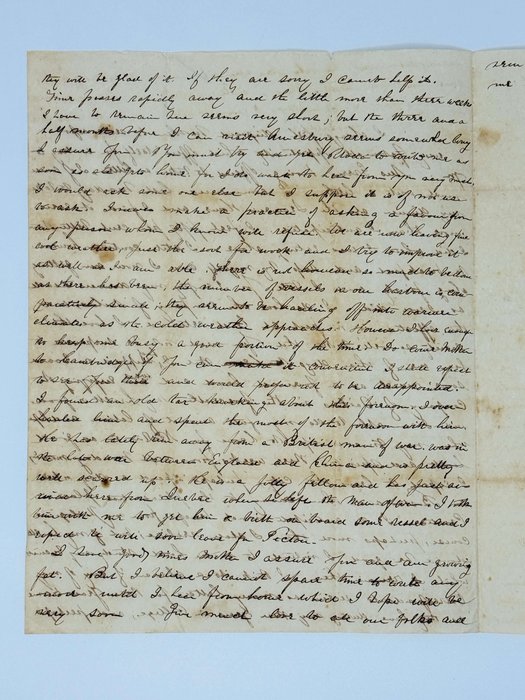
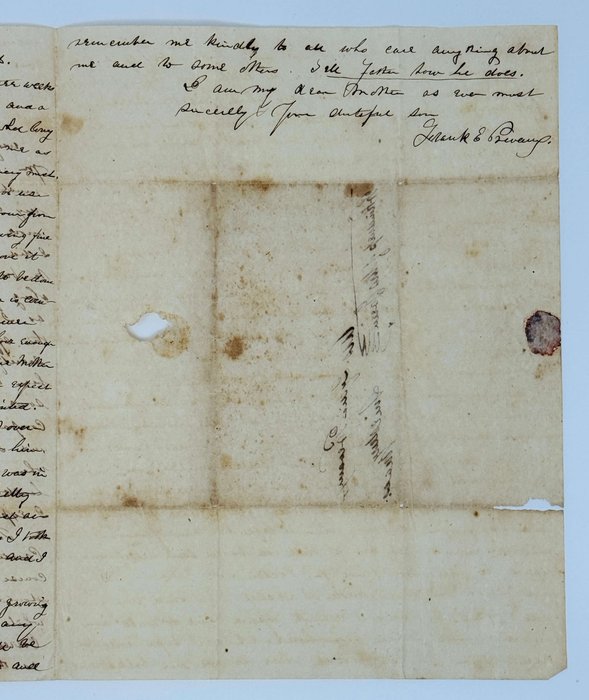
#MD46
Ca. 1840s
Quarto bifolium (ca. 25x19 cm or 9 ¾ x 7 ½ in). 2,5 pp. Brown ink on creamy wove paper; addressed on verso of the second leaf. Foldmarks and creases, paper slightly age-toned, second leaf with a minor tear and a hole after opening not affecting the text, but overall a very good letter written in a legible hand.
An interesting private letter, written by a young port worker in New England (likely, in Providence, Rhode Island) in ca. 1840s. The compiler was most likely Francis Edward Prevaux, “a Baptist missionary from Amesbury, Massachusetts. He graduated from Brown University in 1846 and Newton Theological Institute in 1849. He was ordained a Baptist evangelist in 1850 and was sent to California by the American Baptist Home Mission Society where he began preaching at Bethel Church, San Francisco, California and became the principal of the San Francisco Academy. He remained in California until 1859 and died in Amesbury, Massachusetts in 1860” (Guide to the Bancroft's California Gold Rush Digital Collections// Berlekey Library, University of California; see more).
Written most likely shortly after Prevaux’s graduation from Brown University in 1846, the letter is addressed to his mother, “Mrs. Lydia Prevaux, Amesbury, Mass., pr. kindness of Mrs. Green” (Lydia Prevaux, née Randall, 1787-1876). The author talks about his living conditions, dining in the “Seamen’s Home,” his leave for Newton and upcoming “theological course,” subsequent visit to his family home in Amesbury and a meeting with “an old tar” who “has lately run away from a British man of war, was in the late war between England and China and is pretty well scarred up” (likely, talking about the First Opium War, 1839-1842).
Overall an interesting early letter written by a prominent Baptist missionary in San Francisco during the Gold Rush. Over seventy of Rev. F.E. Prevaux’s letters are deposited in the special collections of the UC Berkeley Library (see more).
Excerpts from the letter:
“I always feel disposed Mother to seize upon every favourable opportunity which offers itself for writing to you. Mrs. Green having offered to take a letter, I of course must write a letter. I commenced last Monday to take my dinner at the Seamen’s Home and I find it even more than I anticipated. I feel fifty per cent better than I did when I was eating alone. I still continue however to breakfast and sup by myself since I now am getting along finely and I tell you I enjoy my dinners as well as I ever did. I do love the company of sailors, and this affection is in part at least returned. I love their society so well Mother that you need not be surprised to hear one of these days that I had slipped on board some vessel as a foremast hand and was enjoying the company of sailors in the forecastle.
My health is good and I am able to do my full amount of labour and hope when my time is up to leave for Newton in as good health and spirits. Three weeks from next Monday morning I expect to leave this city, perhaps spend a day or two in Boston and then away to the pleasantest place in Creation. I do anticipate much benefit from my theological course, perhaps more than I shall realize, but if my health should be good, I intend to make hard study my business while I remain there. I think it’s a chance if any of my correspondents receive as many letters for three years to come as they have during my three years in college, and perhaps they will be glad of it. <…>
Time passes rapidly away and the little more than three weeks I have to remain here seems very short, but the three and a half months before I can visit Amesbury seems somewhat long. <…> We are now having fine cool weather, just the sort for work and I try to improve it as well as I am able. There is not however so much to be done as there has been, the number of vessels in our harbour is comparatively small; they seem to be hauling off into warmer climates as the cold weather approaches. However I have enough to keep me busy a good portion of the time. Do come Mother to Cambridge if you can make it convenient. I shall expect to see you there and would prefer not to be disappointed.
I found an old tar knocking about this forenoon. I overhauled him and spent the most of the forenoon with him. He has lately run away from a British man of war, was in the late war between England and China and is pretty well scarred up. He is a jolly fellow and has just arrived here from Quebec where he left the man of war. I took him with me to get him a […?] on board some vessel and I expect he will soon leave for Pictou…”

